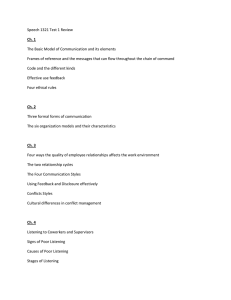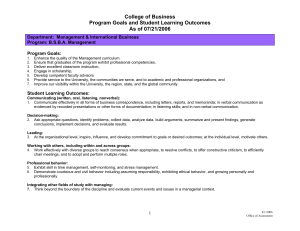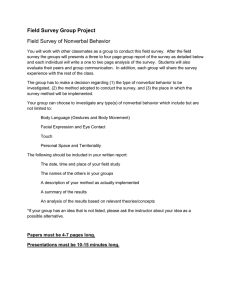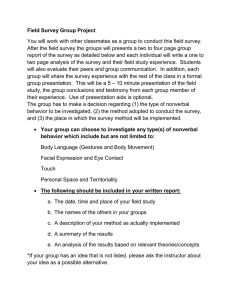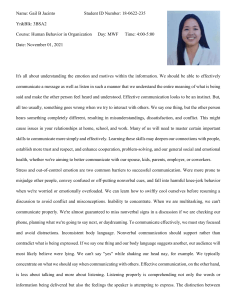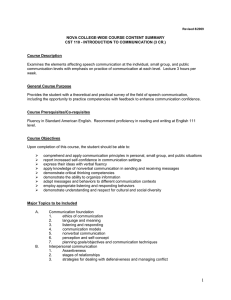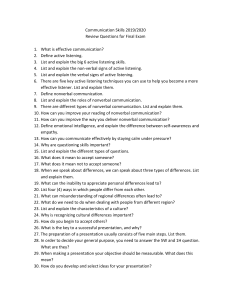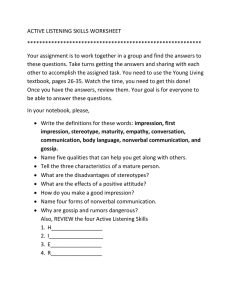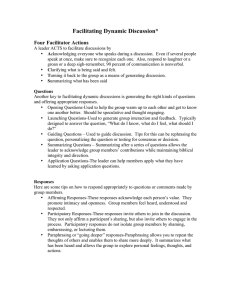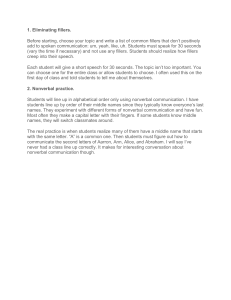improving managerial efficacy 9
advertisement
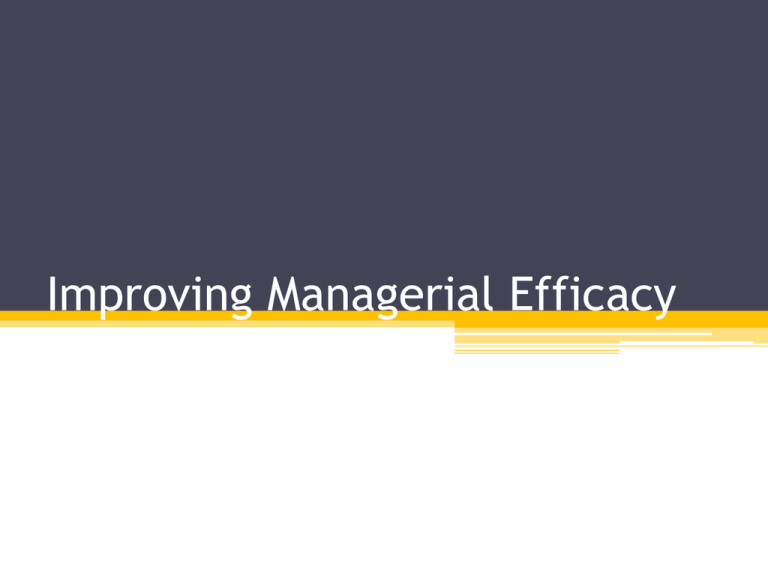
Improving Managerial Efficacy Road Map • • • • • • Developing team-effectiveness Improving nonverbal communication Improving listening Improving speaking Improving writing Improving reading Developing team-effectiveness • • • • • • Establish small teams Encourage diversity Determine purpose, procedures & roles Acknowledge & manage conflict Cultivate good communication skills Advance an environment of open communication Developing team-effectiveness • Encourage collaboration & discourage competition • Share leadership • Create a sense of fairness in making decisions • Lighten up • Continually assess performance Improving nonverbal communication • • • • • Establish & maintain eye contact Use posture to show interest Reduce or eliminate physical barriers Improve your decoding skills Probe for more information Improving nonverbal communication • Avoid assigning nonverbal meanings out of context • Associate with people of diverse cultures • Appreciate the power of appearance • Observe yourself on videotape • Enlist friends and family Improving listening • • • • • • • • Stop talking Work hard at listening Block out competing thoughts Control the listening environment Maintain an open mind Paraphrase the speaker’s ideas Listen between the lines Capitalize on lag time Improving speaking • • • • • • • • • Defeat your natural public speaking fears Create a sincere rapport with your audience Expertly turn a “speech” into a “conversation” Use eye-contact, gestures and breath for maximum effect Develop, organize, and design a presentation for any occasion Effectively deliver information from the screen to your audience Save endless hours of preparation before your next presentation Handle and profit from tough questions Use humor safely and effectively Improving writing • • • • • • • • • Identify the message purpose Select the most appropriate form Profile the audience Focus on reader benefits Avoid gender & racial bias Avoid age & disability bias Express ideas positively rather negatively Use short, familiar words Search for precise vigorous words Improving writing • • • • • • • • • • Keep the message simple Be conversational Avoid opening fillers Shun redundancies Tighten your writing Don’t convert verbs to nouns Avoid trite phrases Strive for parallelism Highlight important ideas Test readability Improving reading • You don't have to be a great reader to get the point. • Know WHY you're reading • You don't need to read everything • You don't need to read all of what you DO read • Scan before you read • Prioritize your reading • Optimize your reading environment • Once you start, don't stop • Focus • Practice

